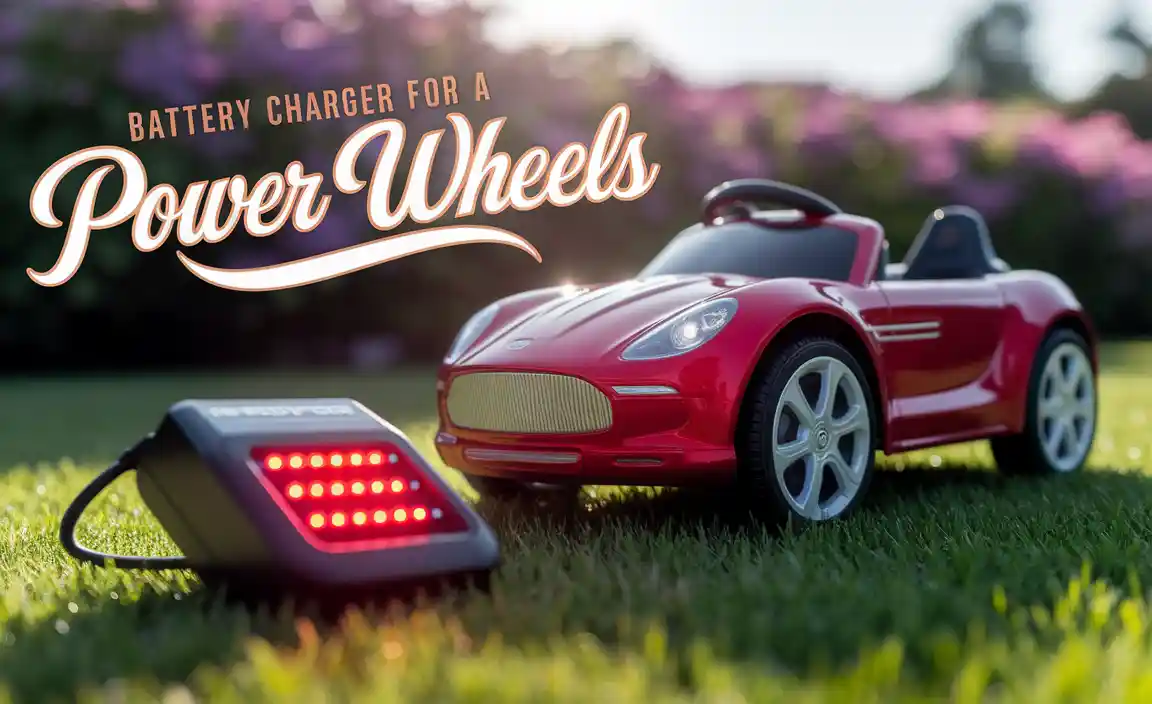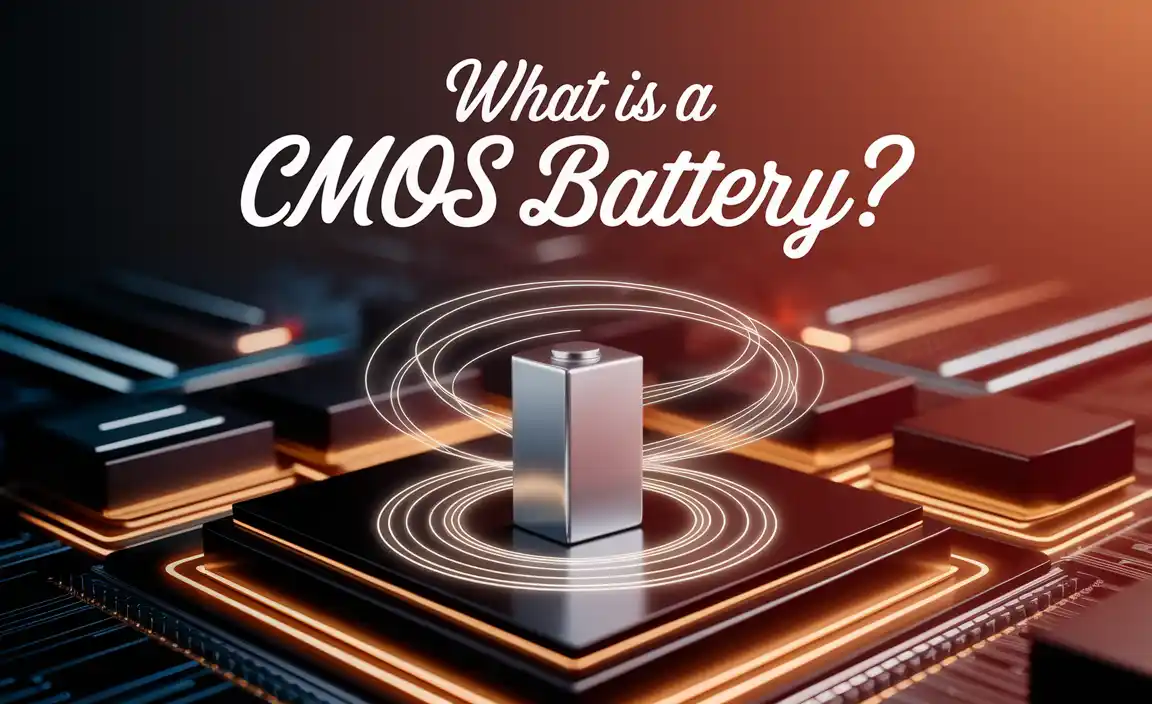Quick Summary:
Looking for a cheap hybrid car battery for summer? Smart move! You can save money by understanding replacement options, looking at refurbished units, and doing some seasonal checks. Keeping your hybrid’s battery healthy in the heat helps avoid costly repairs and ensures better efficiency. Get ready to discover easy ways to save big this summer.
Beat the Summer Heat with a Budget-Friendly Hybrid Car Battery
Summer driving can be tough on your hybrid car battery. High temperatures can make it work harder, and if it’s not in top shape, you might face unexpected issues. Finding a “cheap hybrid car battery for summer” isn’t just about saving cash; it’s about keeping your car running smoothly when you need it most. Don’t let battery worries spoil your sunny adventures. This guide will walk you through smart ways to find affordable options and simple care tips to protect your investment, so you can enjoy the open road without a second thought. We’ll cover everything you need to know, from understanding what affects your battery to finding the best deals.
Understanding Your Hybrid Car Battery
Hybrid cars have two power sources: a gasoline engine and an electric motor, powered by a special hybrid battery pack. This battery helps boost acceleration and allows the car to run on electricity alone for short periods. Unlike a regular car’s starter battery, the hybrid battery is much larger and more complex.
These batteries are designed to last for many years, often 100,000 miles or more. However, like any part of your car, they can eventually wear out. Several factors can speed up this process, especially extreme weather conditions like the heat of summer.
What Makes Hybrid Batteries Work Harder in Summer?
Summer heat is a major enemy for most batteries, and hybrid ones are no exception. Here’s why:
- Increased Demand: When it’s hot, your car’s air conditioning system works overtime. This draws more power, putting extra strain on the hybrid battery.
- Heat Sensitivity: High temperatures can directly affect the battery’s chemical reactions. This can lead to a quicker drain on its charge and can even shorten its lifespan if it’s constantly overheating.
- Reduced Efficiency: A hot battery isn’t as efficient at holding a charge or delivering power. This means your hybrid might not get the best gas mileage or electric-only range during the hottest months.
Signs Your Hybrid Battery Might Need Attention
It’s good to know the warning signs. If you notice any of these, it’s time to investigate:
- Reduced Fuel Economy: If your car isn’t getting the miles per gallon it used to, the battery might be struggling.
- Dashboard Warning Lights: Lights like the “hybrid system warning” or “check engine” can indicate battery issues.
- Power Loss: You might feel a decrease in acceleration or overall power, especially when starting from a stop.
- Unusual Noises: Sometimes, a failing battery can make strange sounds.
Finding a “Cheap Hybrid Car Battery for Summer”: Your Options
When it’s time to replace your hybrid battery, the cost can seem intimidating. But there are ways to find more affordable options, especially if you’re looking for a solution for the summer driving season. It’s all about knowing where to look and what to ask for.
1. Refurbished or Reconditioned Hybrid Batteries
These are used hybrid batteries that have been tested, cleaned, and repaired. Often, weak cells are replaced, and the battery is brought back to good working order. They are significantly cheaper than brand-new batteries.
- Pros: Much lower cost, environmentally friendly (reusing components), often come with a warranty (though shorter than new).
- Cons: Lifespan might be shorter than a new battery, warranty coverage can vary.
When buying refurbished, always check the warranty terms carefully. A reputable seller will stand behind their product with at least a 6-month to 1-year warranty.
2. Used Hybrid Batteries
Purchasing a used battery from a salvage yard or a private seller can be the cheapest option. However, this is also the riskiest.
- Pros: Potentially the lowest price.
- Cons: No warranty usually, unknown history, could fail quickly, difficult to test before buying.
This option is generally not recommended unless you have specific expertise or can get the battery thoroughly tested by a specialist beforehand.
3. Remanufactured Hybrid Batteries
Similar to refurbished, but often implies a more thorough rebuilding process. These batteries are typically restored to “like-new” condition by replacing worn-out components with new or refurbished ones. This can be a good middle ground in terms of cost and reliability.
4. Aftermarket Hybrid Batteries
These are new batteries made by companies other than the original car manufacturer. They can sometimes be more affordable than OEM (Original Equipment Manufacturer) batteries. However, quality can vary greatly among aftermarket brands. It’s crucial to research the brand and read reviews.
5. Comparing Prices and Warranties
Shop around! Get quotes from multiple sources, including:
- Specialist Hybrid Battery Shops: These shops often focus only on hybrid batteries and may have competitive pricing for new, refurbished, or remanufactured options.
- Online Retailers: Many websites sell hybrid batteries. Compare prices, shipping costs, and warranty details.
- Local Mechanics (with Hybrid Experience): Some independent mechanics might source and install aftermarket or refurbished batteries at a lower cost than dealership options.
Key Question to Ask: Always ask about the warranty. What does it cover? How long does it last? What is the process for a warranty claim?
A good deal on a “cheap hybrid car battery for summer” isn’t just about the upfront price. It’s about the total value, including how long you expect it to last and the peace of mind a decent warranty provides. For more insights into battery care, the U.S. Department of Energy’s Vehicle Battery Maintenance Guide offers helpful general advice.
Pre-Summer Hybrid Battery Maintenance Tips
Before the summer heat really kicks in, a little bit of preventative maintenance can go a long way in extending the life of your current hybrid battery and helping it perform better. These are simple steps you can often do yourself or with minimal help.
1. Keep it Cool (Inside and Out)
While you can’t control the weather, you can manage how your car handles it.
- Park in the Shade: Whenever possible, park your car in a shaded area or a garage to keep the overall temperature down.
- Limit Idling: Prolonged idling, especially in hot weather, can make the battery work harder without much benefit.
- Regular Check-ups: Ensure your car’s cooling system (radiator, fans) is working properly. A well-functioning cooling system helps keep the battery from overheating.
2. Monitor Battery Performance
Pay attention to how your car feels driving. If you notice a slowdown in acceleration or a drop in your usual MPG, it might be the battery showing signs of stress.
3. Check for Obstructions
Hybrid batteries often have vents to help with cooling. Make sure these vents are not blocked by dirt, leaves, or debris. A clogged vent can trap heat.
You can often access these vents by looking under the car or in the trunk area. Gently clean them with a soft brush or compressed air. Always ensure the car is off and cool before attempting any cleaning.
4. Battery Health Checks
Some auto shops offer battery health assessments. While this might cost a small fee, it can give you a clear picture of your battery’s condition and estimated remaining life. This information is invaluable when deciding if you need to start looking for replacements.
DIY vs. Professional Hybrid Battery Replacement
Replacing a hybrid battery is a more involved process than changing a regular car battery, and safety is paramount. Here’s a look at DIY versus professional installation.
Why Professional Installation is Often Recommended
- High Voltage: Hybrid systems operate at very high voltages, which can be extremely dangerous, even lethal, if handled improperly.
- Specialized Tools: You need specific tools to safely disconnect and reconnect the battery modules.
- Complex System: The battery pack is integrated into the car’s complex electronic system. Incorrect installation can damage other components or cause the car to malfunction.
- Safety Procedures: Professionals are trained in the precise safety protocols required for working with high-voltage automotive systems.
For these reasons, many hybrid owners opt for professional installation. While it adds to the cost, it ensures the job is done safely and correctly. Many specialist hybrid battery shops offer installation services, and this often comes with a warranty on both the battery and the labor.
When DIY Might Be Considered (with Extreme Caution)
If you have a strong background in automotive electronics, understand high-voltage systems, and have access to the correct tools and a safe working environment, you might consider a DIY approach for simpler battery issues, like replacing an individual faulty module. However, for a full pack replacement, it’s generally too complex and risky for the average user.
Important Note: If you’re considering buying a battery online for DIY installation, factor in the cost of tools and the potential risks. Many companies that sell hybrid batteries also offer installation services.
Comparing Replacement Battery Costs
The cost of a hybrid battery replacement can vary significantly based on the type of battery, the make and model of your car, and where you buy it. Here’s a general idea:
| Battery Type | Estimated Cost Range (USD) | Typical Warranty |
|---|---|---|
| New OEM Battery | $2,000 – $6,000+ | 3-8 years or 100,000 miles |
| New Aftermarket Battery | $1,500 – $4,000 | 1-3 years or 30,000-50,000 miles |
| Remanufactured Battery | $1,000 – $3,000 | 1-2 years |
| Refurbished Battery | $800 – $2,000 | 6 months – 1 year |
| Used Battery (from salvage) | $300 – $1,000 | Usually none, or very limited |
Note: These are estimates and do not include installation costs, which can add $200 to $1,000 or more depending on labor rates and complexity.
When looking for a “cheap hybrid car battery for summer,” remanufactured or refurbished options often provide the best balance of cost savings and reliability, especially if they come with a reasonable warranty. Always get a quote for both the part and the installation.
Cost-Saving Strategies for Hybrid Battery Replacement
Beyond just finding a cheaper battery, there are a few extra strategies to save money:
- Shop Multiple Quotes: As mentioned, this is crucial. Don’t settle for the first price you get.
- Ask About Core Charges: When you buy a new or remanufactured battery, there’s usually a “core charge.” This is a deposit you get back when you trade in your old battery, reducing the overall out-of-pocket expense. Make sure you understand the core charge amount and the process for returning your old battery.
- Consider Timing: While you need a functioning battery in summer, sometimes replacing it in the off-season (fall or winter) might slightly reduce demand and potentially lead to better deals from installers.
- DIY Parts Sourcing (with Caution): If you’re working with a trusted independent mechanic, you might be able to source a battery yourself from an online supplier and have them install it. This can sometimes cut costs, but ensure your mechanic is comfortable with this arrangement.
- Explore Local Specialists: Dealerships are often the most expensive. Look for independent shops that specialize in hybrid vehicles. They often have lower overhead and can offer more competitive pricing.
Tools and Supplies You Might Need (for related simple checks)
While full battery replacement is best left to professionals, here are some basic tools that can be helpful for simple checks and maintenance tasks:
- Safety Gloves: To protect your hands.
- Safety Glasses: Essential eye protection.
- Basic Socket Set: For minor access panels.
- Wire Brush or Compressed Air: For cleaning battery vents.
- Microfiber Cloths: For wiping down surfaces.
- Owner’s Manual: Always consult your car’s manual for specific procedures and warnings.
If you’re dealing with anything beyond simple cleaning, it’s safest to stop and consult a professional. Working with high-voltage systems is not like changing a standard 12V car battery for your headlights.
Understanding Battery Warranties
A warranty can be the difference between a great deal and a costly mistake. Here’s what to look for:
Types of Warranties
- Full Warranty: Covers parts and labor for a specified period.
- Limited Warranty: May cover parts only, or have prorated coverage (you pay a portion based on age).
- Pro-Rata Warranty: The longer you’ve had the battery, the more you pay for a replacement.
What to Check For
- Duration: How long is it valid (e.g., 1 year, 3 years)?
- Mileage Limit: Is there a limit on how many miles the warranty covers?
- Coverage: Does it cover the entire battery pack, or just specific components?
- Transferability: If you sell the car, is the warranty transferable to the new owner?
- Claim Process: How easy is it to make a warranty claim? What documentation is required?
- Exclusions: What situations would void the warranty (e.g., improper installation, damage)?
A good warranty from a reputable seller is a strong indicator of quality and reliability. For example, companies like GreenTec Auto, a specialist in hybrid battery replacement, often highlight their warranty terms as a key benefit.
What Affects Hybrid Battery Lifespan Beyond Summer Heat?
While summer heat is a significant factor, several other elements influence how long your hybrid battery will last:
- Driving Habits: Aggressive acceleration and hard braking can put more stress on the battery than smooth, consistent driving.
- Climate: Extreme cold, like extreme heat, can also affect battery performance and lifespan.
- Mileage and Age: Like all components, batteries degrade over time and with use.
- Electrical System Health: Issues with other parts of the car’s electrical system can sometimes put a strain on the hybrid battery.
- Maintenance: Regular servicing of your vehicle, including checks on the hybrid system, can help identify issues early.
Understanding these factors helps you manage your expectations and take better care of your hybrid vehicle.
FAQ: Your Hybrid Battery Questions Answered
Q1: How often do hybrid car batteries need to be replaced?
Most hybrid car batteries are designed to last the lifespan of the vehicle, often 100,000 to 150,000 miles or 8 to 10 years. However, this can vary based on driving conditions, climate, and maintenance.
Q2: Can I use a regular car battery charger on a hybrid battery?
No, absolutely not. Hybrid batteries operate at much higher voltages and require specialized chargers and procedures. Using a regular charger can be extremely dangerous and damage the battery.
Q3: Is it cheaper to repair a hybrid battery or replace it?
Sometimes individual modules within the battery pack can be replaced, which is cheaper than a full pack replacement. However, if multiple modules are failing or the damage is extensive, a full replacement or a remanufactured unit may be more cost-effective in the long run.
Q4: What are the environmental benefits of replacing a hybrid battery?
Reputable battery recyclers and remanufacturers ensure that old batteries are disposed of or refurbished in an environmentally responsible manner, preventing hazardous materials from entering landfills and giving components a new life.



